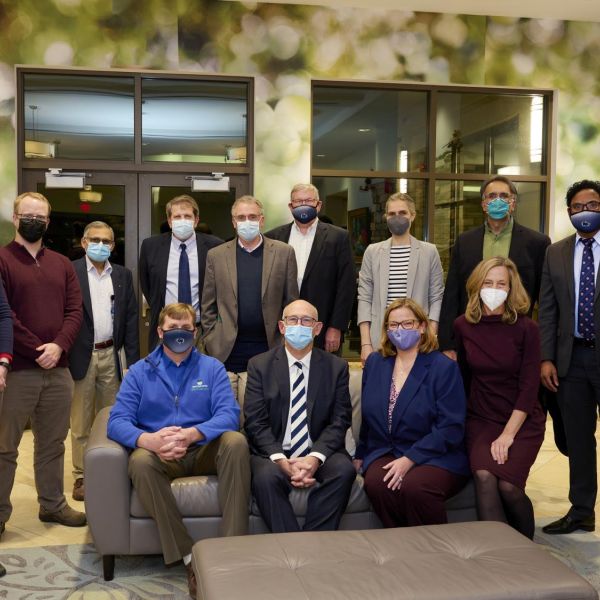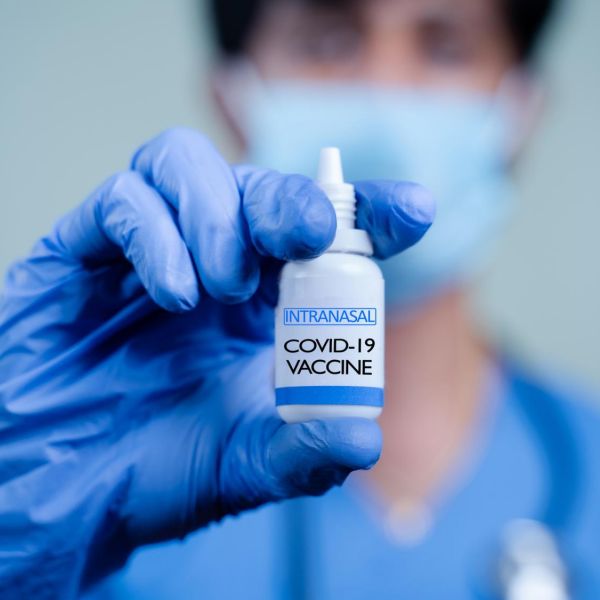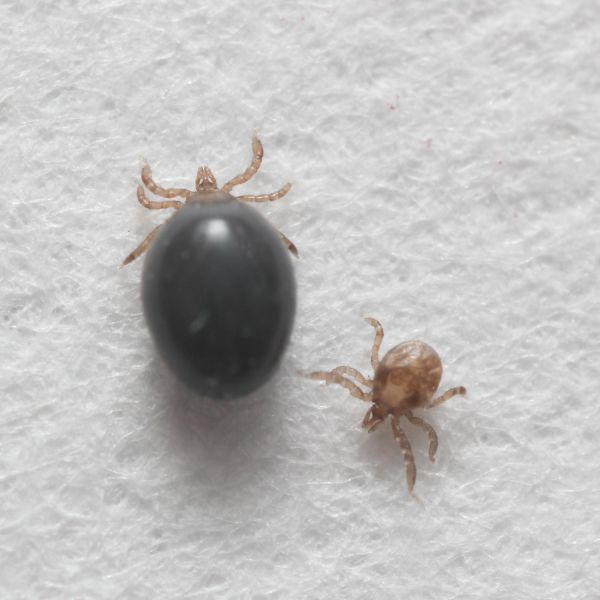News

Apr 11, 2022
Preventing, controlling spread of animal diseases focus of forum at Penn State
Exploring the emergence, spread and control of animal infectious diseases was the focus of the inaugural Emerging Animal Infectious Disease Conference held Nov. 29-Dec.1, 2021, at Penn State. It was hosted by the College of Agricultural Sciences, the Pennsylvania Department of Agriculture, and Penn State’s Center for Security Research and Education.
Full Article

Mar 17, 2022
Inhalable aerogel triggers immunity to COVID-19 in mice, may block transmission
An inhalable "aerogel" loaded with DNA that encodes for the SARS-CoV-2 spike protein successfully induces an immune response against COVID-19 in the lungs of mice, according to new research conducted at Penn State.
Full Article

Mar 16, 2022
Huck Students Receive Alumni Awards
Two Huck IGDP students have been recognized as part of the 2021-22 Graduate School Alumni Association faculty and student awards in the Life & Health Sciences section.
Full Article

Feb 22, 2022
Omicron detected for first time in white-tailed deer
Some white-tailed deer living in Staten Island, New York, are actively infected with the Omicron (B.1.1.529) variant of SARS-CoV-2, according to new research led by scientists at Penn State. The team also found neutralizing antibodies to SARS-CoV-2 in one of the Omicron-infected deer, suggesting that, like humans, deer can be reinfected with the virus.
Full Article

Feb 18, 2022
Penn State biochemist Manuel Llinás named distinguished professor
Manuel Llinás, professor of biochemistry and molecular biology and of chemistry at Penn State, has been selected to receive the title of distinguished professor of biochemistry and molecular biology in recognition of his exceptional record of teaching, research, and service to the University community.
Full Article

Feb 16, 2022
World’s first gene editing tools for ticks may help decrease tick-borne diseases
Reducing tick-borne diseases, such as Lyme disease, may now be possible thanks to two new gene editing methods developed by researchers at Penn State; the University of Nevada, Reno; and the University of Maryland. The methods could allow scientists to alter parts of the tick genome that are involved in harboring and transmitting pathogens.
Full Article

Jan 28, 2022
Nita Bharti to deliver 2022 Darwin Day Lecture
Nita Bharti, Penn State assistant professor of biology, will deliver a virtual lecture titled “Adaptation for Survival: Humans and Their Pathogens” at 4 p.m. on Thursday, Feb. 10, as part of Penn State’s 2022 Darwin Day celebration. Advance registration is required for the event, which is open to the public.
Full Article

Jan 26, 2022
Omicron genetics and early transmission patterns are characterized in new study
The Omicron variant of SARS-CoV-2 diverged from previous SARS-CoV-2 variants as a result of adaptive evolution, in which beneficial mutations are passed on to future generations through natural selection, rather than through recombination between previous variants, according to a large international team of researchers. The study, which published recently in Nature, is the first to describe the genomic profile of Omicron and explore the origins of the variant.
Full Article

Jan 12, 2022
Researchers use satellites to monitor bat habitat and study virus spillover
Over the last year and a half, the word "remote" has come to dominate a large portion of our collective consciousness. We’ve had to work remotely, learn remotely, and even socialize remotely. But before the pandemic, because of the nature of their research, remote was already a part of the daily lexicon of some Penn State researchers.
Full Article

Jan 11, 2022
COVID-19 case trajectories may be predicted by surveying communities
The public’s willingness to comply with Centers for Disease Control and Prevention (CDC) recommendations correlates with COVID-19 case projections in zip codes where those surveyed about their intended behaviors live, according to Penn State College of Medicine researchers.
Full Article